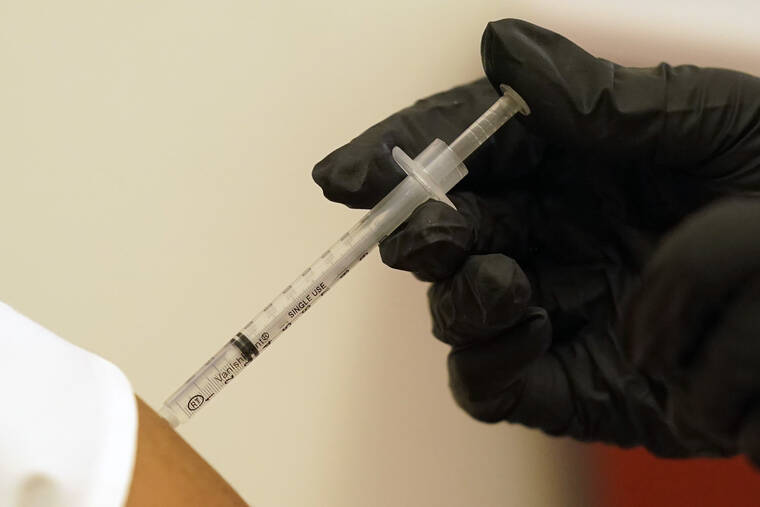COVID shots more protective than past infection, study shows

ASSOCIATED PRESS
A woman was injected with her second dose of the Pfizer COVID-19 vaccine at a Dallas County Health and Human Services vaccination site in Dallas, Aug. 26. Health officials today offered more evidence that vaccinations offer better protection against COVID-19 than immunity from a prior infection.
NEW YORK >> Health officials today offered more evidence that vaccinations offer better protection against COVID-19 than immunity from a prior infection.
Unvaccinated people who had been infected months earlier were 5 times more likely to get COVID-19 than fully vaccinated people who didn’t have a prior infection, the Centers for Disease Control and Prevention concluded in a new study.
“These data show, pretty strongly, that the vaccines are more protective against symptomatic COVID,” said Dr. Mike Saag, an infectious disease expert at the University of Alabama at Birmingham who was not involved in the study.
The study looked at data from nearly 190 hospitals in nine states. The researchers counted about 7,000 adult patients who were hospitalized this year with respiratory illnesses or symptoms similar to those of COVID-19.
About 6,000 of them had been fully vaccinated with the Moderna or Pfizer vaccines three to six months before they wound up in a hospitals. The other 1,000 were unvaccinated but had been infected with COVID-19 three to six months earlier.
About 5% of the vaccinated patients tested positive for the coronavirus vs. about 9% of the unvaccinated group. The researchers factored in other data points, including age and how much virus was circulating in different areas, to calculate that the unvaccinated group was at even higher risk.
Don't miss out on what's happening!
Stay in touch with breaking news, as it happens, conveniently in your email inbox. It's FREE!
The study echoes some earlier research, including studies that found higher levels of infection-fighting antibodies in vaccinated patients.
Saag called the research well done and convincing. He also said it is important information for parents at a time that the government is gearing up to expand its vaccination campaign to more children.
“There have been many people who have advocated, ‘Well, let’s just let the kids get infected.’ I think these data support the notion that the vaccines work better in general, and likely work better for 5- to 11-year-olds,” Saag said.
There was not enough data to reach any conclusion on the Johnson & Johnson vaccine, the authors said.



